Believing we always have a choice is key to living in a free, liberal, democratic society like Australia.
That’s why it is so concerning that the Prime Minister thinks Australians don’t have a choice on the issue of net-zero emissions, and therefore we shouldn’t debate it.
According to the Australian Financial Review’s political editor Phil Coorey, Scott Morrison told a Liberal Party room meeting this week that “the global economic reality was that the world was transitioning towards net zero and Australia had no choice but to adapt its economy or be left behind.”
What is revealing about Morrison’s comment is how passive and helpless it is. It is just plain wrong to say that we have “no choice”. Of course, we have a choice. We always have a choice. And even if you really believe we don’t have a choice, democracy depends upon assuming that we do.
One choice would be to put the question of net-zero to the Australian people at a plebiscite or national referendum. The advocates of net-zero might still win (although I think they would lose in a landslide), but at least we would have a debate.
Another choice would be to simply say that Australia’s domestic emissions and energy policy is a matter for Australians. This appears to be the preference of the overwhelming majority of us.
In 2013 Australians rejected the carbon tax because of the impact it was having on Australian jobs and industry by voting the Abbott-led Coalition into government in a landslide victory.
In 2019 Australians rejected Labor’s climate policy, which included a commitment to net zero, and voted in the Coalition for a third term against widely held expectations that Labor would win.
Now, just two years later, the Coalition is adopting Labor’s policy because they have “no choice”.
It seems that on the issue of net zero, everyone gets to have their say except for mainstream Australians.
The Prime Minister of the UK and the President of the US have had their say by appearing to have made the new AUKUS security alliance contingent on Australia adopting net zero.
As Greg Sheridan wrote for The Australian yesterday: “If there was a quid pro quo for AUKUS, it had nothing to do with joining future US military campaigns and everything to do with giving Joe Biden and Boris Johnson a triumphant media moment at Glasgow. This is just the sort of nonsense Barack Obama tried to sell to Tony Abbott.”
Big business and their lobby groups have had their say, with the Business Council of Australia arguing in a report released earlier this month that not only must Australia adopt net zero. But that we should also cut our emissions by 50 per cent by 2030. Yet just two years ago the BCA was describing Labor’s pledge to cut emissions by 45 per cent as “economy wrecking.”
International bureaucracies have had their say, with the UN, the OECD, and the IMF all demanding nations adopt a net-zero target.
And the big banks and international financiers have threatened to go on “capital strike” – that is, to cut back on their investing in Australia.
Last week, for example, the deputy governor of the Reserve Bank of Australia Guy Debelle noted that “there is a risk we will see more of these divestment decisions sooner rather than later… Governments in other jurisdictions are implementing net zero policies.”
“Both of these”, Debelle argued, “are effectively increasing the cost of emissions-intensive activities in Australia.”
In other words, we have no choice.
Of course, those who are the loudest advocates of a net-zero target are those with the least to lose. As IPA modelling released earlier this year identified, a net-zero emissions target would put up to 653,600 jobs at risk, and more than half of those job losses would be in the agriculture, mining, and heavy manufacturing sectors.
It won’t be the bankers working on Martin Place in Sydney, the CEOs in the corporate boardrooms on Collins Street in Melbourne, or the bureaucrats in Brussels whose livelihoods are at risk.
It is the famers, miners, and manufacturing workers and the families and communities they support in Gladstone, Rockhampton, and Hunter, who will pay the price.
For example, our modelling estimated that up to one in four jobs in the northern Queensland electorate of Flynn, which includes the major port of Gladstone, would be put at direct risk from a net-zero emissions target.
The impact of those job losses will flow through the community, and will impact on local shops, schools, sporting clubs, and religious and civic organisations.
Yet the best our Prime Minister can do is to tell these communities that they don’t have a choice.
Australia became the world’s Great Democracy because every Australian got to have their say on the big issues facing our nation’s future.
On the major and contentious issues of military conscription, banning the Communist Party of Australia, the place of indigenous Australians in our Constitution, and whether to become a republic, all Australians had the opportunity to have their say and participate in debate.
These were debates over gut-wrenching, heart-felt issues which in some cases, such as conscription, were literally a matter of life and death.
The point is not so much which view ultimately prevailed, but that every Australian was dignified with the opportunity to have their voice heard. This meant that even those on the losing side of a given issue were likely to believe Australia’s system of democratic governance worked because they were included in the process.
They remained committed to Australia’s political and social institutions because they had at least had the opportunity to be heard out.
The Australian way is that “you can have an argument with your best mate in the front bar at the pub without resorting to violence and without thinking that the person with whom you disagree is less of a person because they have a different opinion.”
This is what it means to be a classless and egalitarian society. That everyone, manager or worker, believer or non-believer, university-educated or high-school graduate, living in the regions or inner-city, gets the same chance to participate in debate.
The quickest way for people to lose trust, faith, and confidence in the governing institutions of our society, is for the acceptable parameters of debate to be arbitrarily limited and policed by those who have the least at stake in our nation’s future.
And the quickest way to lose trust in democracy and political leaders is to be told by your Prime Minister that you don’t have a choice.
Daniel Wild is the Director of Research at the Institute of Public Affairs.
Got something to add? Join the discussion and comment below.
Get 10 issues for just $10
Subscribe to The Spectator Australia today for the next 10 magazine issues, plus full online access, for just $10.

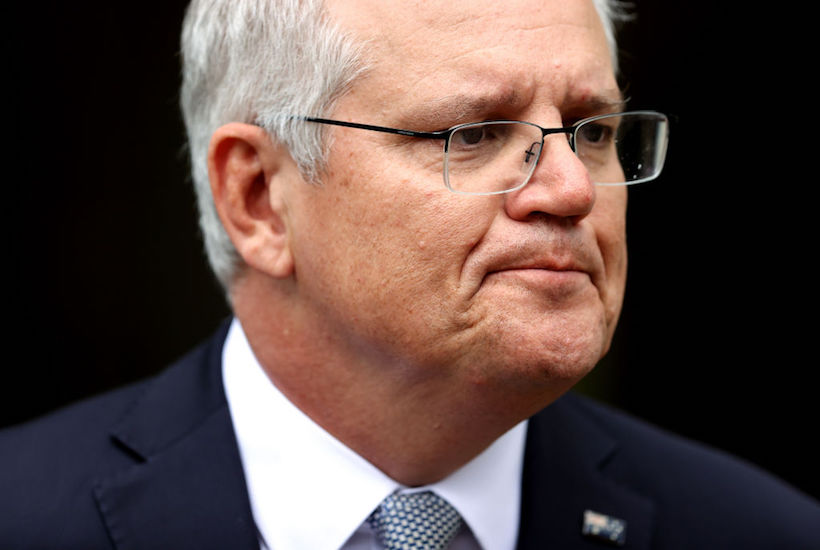
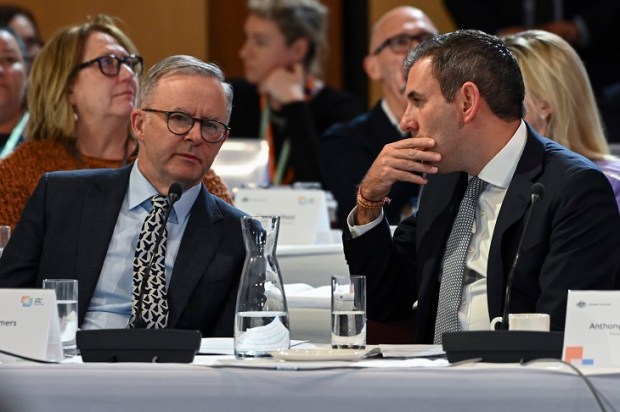
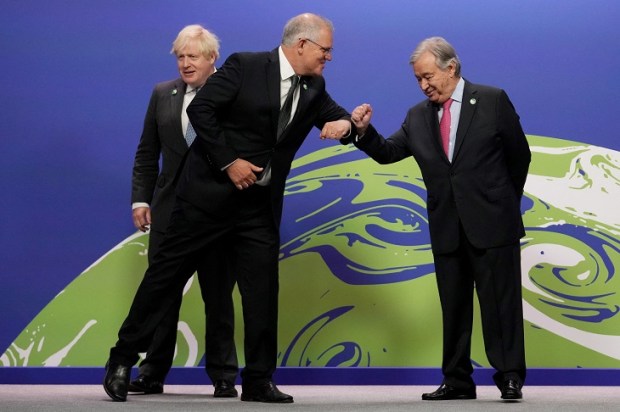
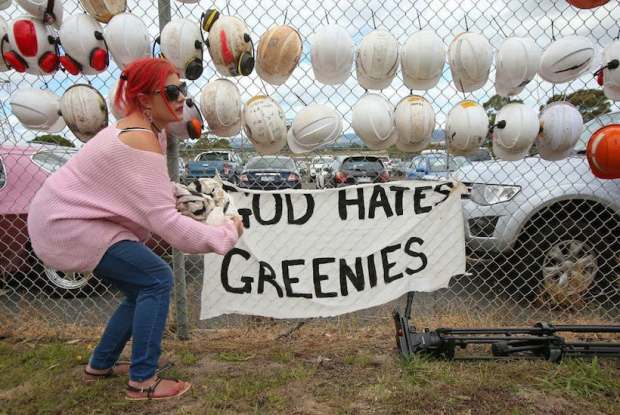
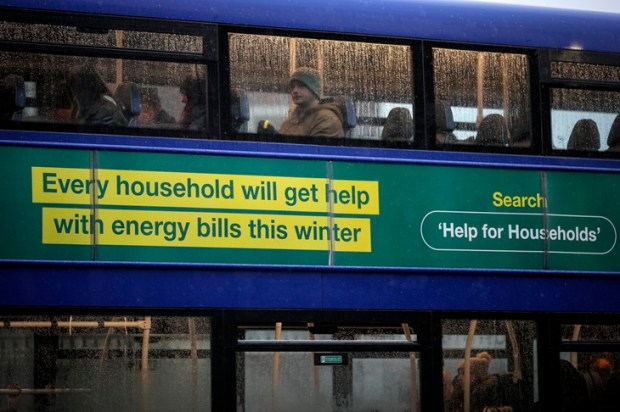

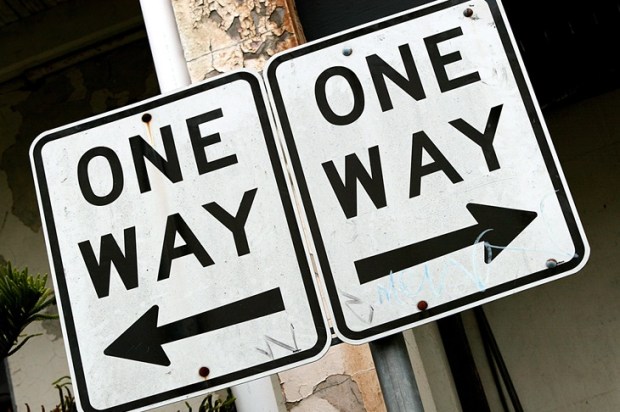


















Comments
Don't miss out
Join the conversation with other Spectator Australia readers. Subscribe to leave a comment.
SUBSCRIBEAlready a subscriber? Log in